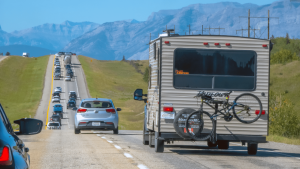Health officials in two western states, California and New Mexico, have confirmed recent human cases of plague connected to camping trips. Both people are recovering, but health officials are using these incidents to remind outdoor enthusiasts about precautions that can help lower the risk.
California Case: South Lake Tahoe Camper
A California resident contracted plague after likely being bitten by an infected flea while camping in the South Lake Tahoe area, according to the El Dorado County Public Health Division. It is the first confirmed case in that county since 2020, though rodents in the area have tested positive for plague in recent years. The individual is recovering at home under medical supervision.
“El Dorado County is one of many areas in California where plague is naturally present, especially in higher elevations,” said Kyle Fliflet, acting public health director for the county. “People should take precautions for themselves and their pets when hiking or camping in areas with wild rodents.”
New Mexico Case: Camper Near Santa Fe National Forest
The New Mexico Department of Health (NMDOH) confirmed its first 2025 human plague case in a 43-year-old man from Valencia County who had been camping in Rio Arriba County, near the Santa Fe National Forest. He was hospitalized but has since been discharged.
“This case is a reminder of the severe threat that can be posed by this ancient disease,” said Erin Phipps, the state’s public health veterinarian. She added that it highlights the need for awareness and prevention when spending time outdoors.
New Mexico accounts for about half of the country’s plague cases each year. The state recorded its last human case in 2024.
What to Know About Plague in the U.S.
Plague is caused by the bacterium Yersinia pestis, historically responsible for the “Black Death” in Europe. In modern times, it remains rare in the United States, with an average of seven cases annually, mostly in rural parts of New Mexico, Arizona, Colorado, California, Oregon, and Nevada.
The disease spreads primarily through the bite of fleas that have fed on infected rodents such as chipmunks, squirrels, or mice. It can also spread through direct contact with infected animals, including pets.
Symptoms and Treatment
Symptoms usually appear 1–14 days after exposure and may include:
- Sudden fever and chills
- Headache
- Weakness or nausea
- Painful swelling of lymph nodes (bubonic plague)
If untreated, plague can become life-threatening. However, antibiotics are highly effective when given early to both humans and pets.
How Campers and Hikers Can Protect Themselves
Health agencies in both states urge the public to take these precautions when visiting campgrounds, forests, or rural areas:
- Avoid contact with wild rodents, especially if they appear sick or dead.
- Keep campsites clean and free of food scraps or clutter that may attract rodents.
- Do not camp or rest near rodent burrows or areas with visible rodent activity.
- Use insect repellent containing DEET and wear long pants tucked into socks or boots to reduce flea exposure.
- Protect pets with flea control products and prevent them from interacting with wildlife.
- Seek medical attention promptly if you develop sudden fever, swollen lymph nodes, or flu-like symptoms after outdoor activities.
No Need for Alarm
Plague isn’t spreading widely across the country, but these two cases are reminders that it still circulates in certain environments. For most campers and RVers, the risk is very low. Still, staying aware of your surroundings, using basic protective measures, and knowing the early symptoms can make all the difference if exposure happens.







Write a comment